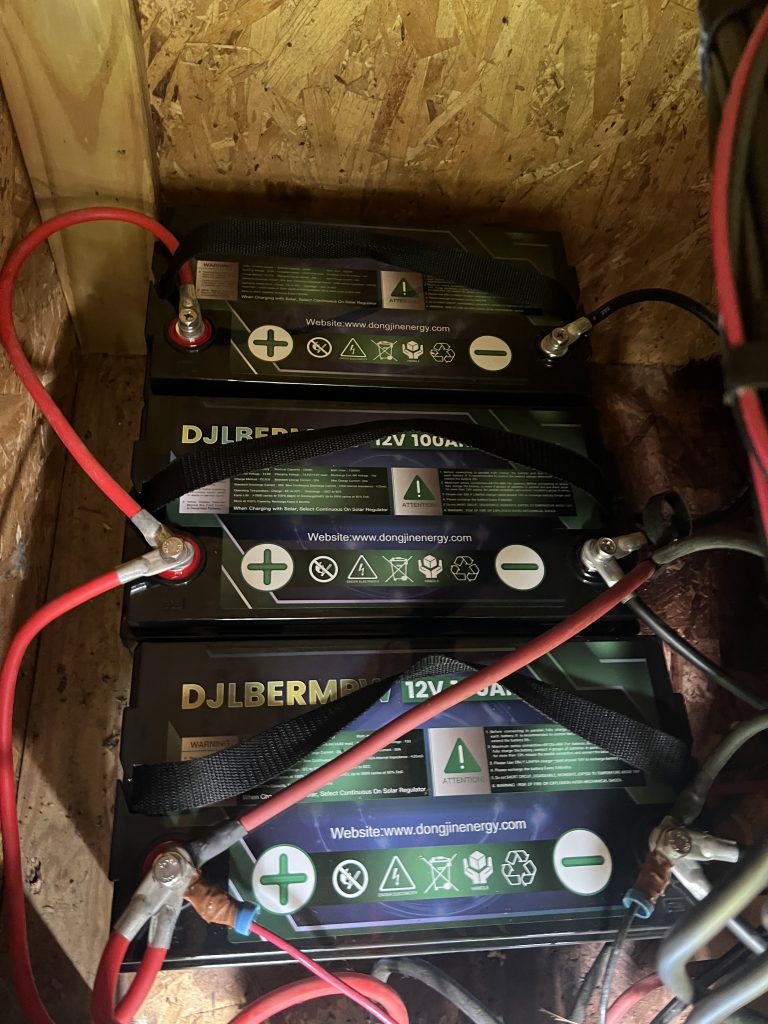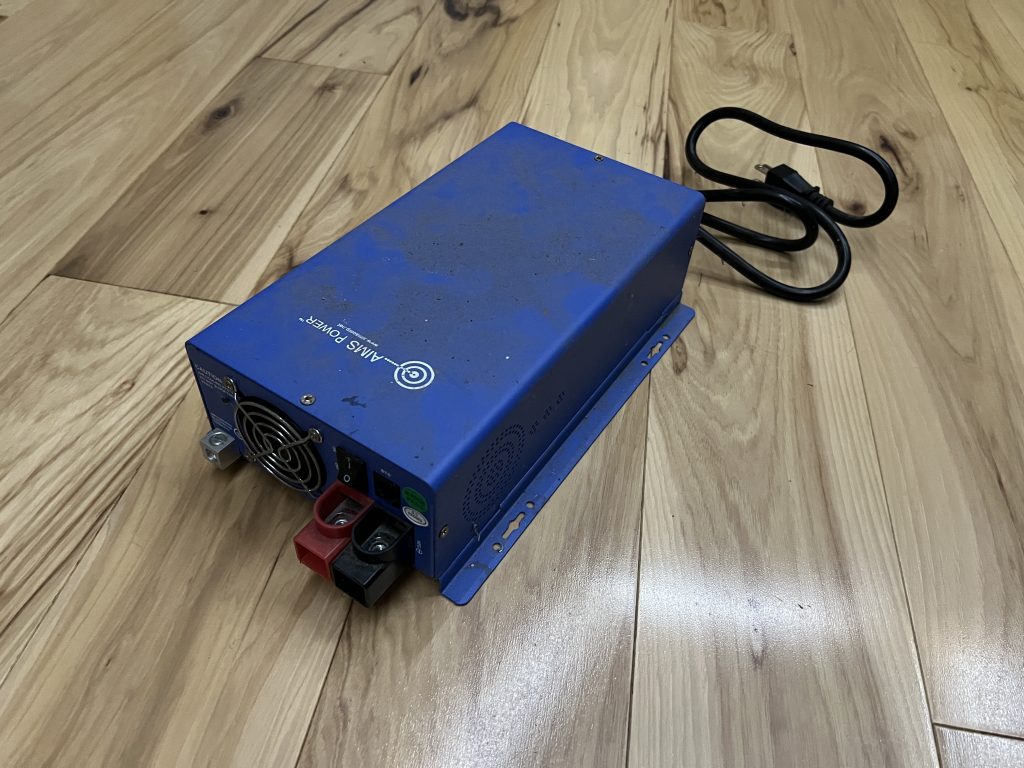Just found that out, this is starting to be a very expensive lightning strike.
Thunder & Solar Monitoring
I lost a voltage sensor the exact minute thunder struck very close to the house, Nicole happened to be filming because it was an impressive mix of rain, hail & thunder. Does thunder create some sort of EMP? Could be a coincidence but the timing is really suspicious. Sorry I mean sus.
dead sensor :\
Oh, well I’ll just buy a replacement.
And fuck, I forgot we screw over allies and suck up to dictators now. Phidgets come from Canada, I never found any comparable alternatives in the realm of current sensing that goes beyond small hobbyist projects. And I don’t really want to relearn/recode a whole new deal anyway. I just want replacement parts.
Extensive searching pointed to robotshop.com having Phidgets parts in stock. So I grabbed spares for everything to get a few thunderstrikes ahead and buy me a few years. For the top 3 parts, I grabbed everything they are left.
The battery voltage sensor is actually important these days as automation uses it to make decisions on which circuits to turn on/off. So for a few days until I got the part, I moved the panels’ voltage sensor to the battery. Sensing the panels is informational and has no real consequence on function. With anything solar, I have appreciated having spares at hand so it was time to spend some money and make that true for the monitoring side of things which we became more dependent on over time.
Slow Boiled Again
Solar battery degradation always happens slowly enough that I don’t realize how bad things have become. And as soon as I talk about replacing batteries, they know and completely give up on me.
For my first battery bank, I got AGM batteries which were nice but didn’t last as long as I thought they would. I liked that they were sealed and didn’t require maintenance, it was a good beginner choice.
When they died, I replaced them with more standard Flooded Lead Acid. They seem to be much most common around off griders in the area. In talking with them, they related many years of service for theirs. I figured I knew enough then, and I’d maintain them to prolong their lifetime. So I got Flooded Lead Acid for my next generation.
Well, I kept them only about 2.5 years and now they are very much toast. A friend of mine just got Lithium batteries, and since I was due for a replacement, I delved into it to see if it would be a good idea. Last I checked they were way more expensive per Ah (Amp hour), and I was a little suspicious of lithium having experienced its instability in small electronics batteries.
Turns out, while the price per Ah is indeed much more for Lithium, the price per Ah per cycle is about 5 times less. And in our case, we very much cycle our batteries. We don’t have a turbine to keep them charged 24/7. They have so many advantages I feel stupid I didn’t switch earlier. It’s always difficult to question established wisdom, especially from a place of ignorance. As far as I can tell Lithium batteries have the following advantages:
- 5 time cheaper when accounting for cycles
- 200 to 500 cycles for lead acid batteries, 4000 to 15000 for cycles which makes them cheaper and require less maintenance swapping and rewiring
- they are much, much lighter to carry
- no need to keep filling them with water (another point for less maintenance)
- no splashing acid
- no need to play reviving games with epsom salt (maintenance again…)
- no hydrogen gas release which a spark can blow up if allowed to accumulate
- more stable voltage provided
- actually provide their rated Ah (lead acid ratings are followed by recommendations to stay within a fraction of rating)
Some of these I can attest to already, the longevity ones remain to be seen.
So I replaced 5 lead acid batteries with 3 lithium ones, and the difference is night and day. But given how far gone they were, it would be true with anything.

I am definitely a bit more worried about the result of a failure. However, years ago I put all the electrical stuff in a shed detached from the house. I had no idea what I was doing with anything electrical and figured if I must set something on fire, it might as well not be the house. Today I’m still happy with the decision. Last Summer a house burnt down and people died in a neighboring village from a power tool battery charger which kept charging a Lithium battery. These are usually around 4Ah, you can imagine 3*100Ah would definitely set stuff on fire. I’ve been worried about all the small electronics we have in the house with their own Lithium batteries and probably a single sensor deciding if they should keep getting charged or not. Sensors fail. In any case, I’m happy to have these new batteries which promise to make my life easier, and to have them away from the house :).
My charge controller was rated for Lithium batteries, but it turns out that wasn’t true out of the box. Lithium technology is still new enough that not everything comes ready for it. Switching it over was, like too many things in life these days, a computer nightmare. Serial communication, bad software, bad translation, and no documentation. Even though I understand things better these days, I’m still baffled by how disparate information is about anything solar.
On the money front, these guys set me back $784. It’s pricey but nothing compared to years of electric bills. Our solar system has paid for itself a couple of time over, and only the batteries come with a recurring cost every few years.
Lastly I’m happy and eager to keep learning about all this, I’ve come a long way since the beginning. This understanding ties into electronics projects. Nicole got an electric lawnmower recently, and the ultimate goal is of course an electric car. I’m still working on scaling up, and improving processes and automation to get there. I can’t wait for the day where this solar array is my gas station.



